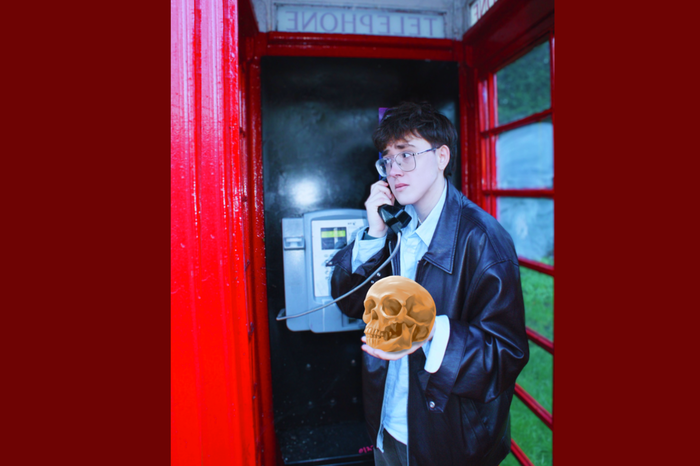All that’s Renaissance is not gold: staging Early Modern drama in the modern theatre
Millie Wooler questions whether Renaissance theatre is still quite so relevant as CamDram would have you believe

Doctor Faustus, as it survives today, is a mess. For all its fame, Christopher Marlowe’s complex play is anything but the masterpiece you might be expecting. For a start, it survives in two forms, known to scholars as Text A and Text B. There’s plenty of speculation on the reasons behind the textual variation, but nothing definitive. It’s not the only play from the Renaissance to survive in such startling variation – arguably, William Shakespeare’s Hamlet is the play worst affected by variations, existing in three distinct versions. However, the fact that it isn’t Shakespeare means that there seems to have been less effort to establish a ‘definitive’ version.
There are difficulties with all Marlowe’s plays. Edward II, his most dramatically competent play, asks for simply too many characters for most casts to perform it with ease. Dido, Queen of Carthage has potential, but it doesn’t hold up to the narrative complexity of many modern plays. And yet, as the recent run of Faustus at the ADC has proved, these plays draw in not only audiences, but also good reviews.
“These plays draw in not only audiences, but also good reviews”
One of the major themes of Faustus is the question of Calvinism – is one’s place in the afterlife determined before birth, or are one’s actions on earth taken into consideration? For the majority of audiences, this question has lost much of its old relevance. To truly speak to the modern audience you have to be able to convert this question of election into something that matters now. For example, a modern audience might not find it too much of a leap to consider this in terms of class – does someone’s birth equate to the doors that they find opened to them in later life? A reshaping of the narrative in this way could allow the play to remain relevant to the audience for years.
That said, I suppose it’s a matter of what you want to be able to take away from your experience in the theatre. For me, theatre is a form of activism, a vital and exciting energy thrusting current political and ethical discourse to the forefront. As the audience, we are not passive recipients of entertainment, but fellow speakers in a discourse guided by the ‘entertainment’ that we are watching. Because of this, Renaissance theatre needs careful reshaping not only to remain engaging, but to speak to us in ways that matter now.
If you don’t agree with me, then look to reasonably well-crafted plays such as The Winter’s Tale or Webster’s The Duchess of Malfi, which need little work. They are beautiful and engaging pieces of theatre that can be appreciated merely for the sake of their poetry and intrigue. Others, such as Doctor Faustus, aren’t so lucky. Marlowe’s play is a jumble of vignettes attempting (but not always succeeding) to create a whole. Chances are, most Renaissance plays you watch merely for aesthetics are going to need reshaping anyway, due to shifts in modern theatrical technology and, simply, changes in our dramatic appetites.
“These old plays still have a lot to offer us, they just take a lot of work to fit into shape”
However, if you do agree with me, plays like Romeo and Juliet can offer up exciting new opportunities to explore very modern topics. Productions of Shakespeare’s classic love story that equate the ‘ancient grudge’ with sectarian, racial, or class conflicts can be controversial. The text makes it apparent that the violence springs from social equals over a fairly gratuitous matter. But perhaps this textual evidence highlights an underlying, ethical equality. Both sides, although treated differently, are worth the same as human beings.
I think it’s time to release our grip on the sanctity of these ancient texts. Just because it’s old, it doesn’t mean it’s perfect. Timon of Athens is often dismissed as an imperfect – even abandoned – play, yet the conversations we can have with it in the modern age are some of the most fascinating in the entirety of Shakespeare’s canon. For Marxist critics (and, indeed, Marx himself), the play offers a scathing critique of capitalist culture. Decadence and generosity battle against greed and isolationism. Under the hands of a decent director, Timon can shine as a conversation between the proto-capitalist writer and the post-industrial audience.
These old plays still have a lot to offer us, they just take a lot of work to fit into shape. Flashy performances are not enough to cover up the difficulties of the texts; they have to be able to speak to us as modern audiences. It would be ridiculous to value them as timeless masterpieces to which our modern theatre just can’t compare – Cambridge’s student theatre scene proves that a mixture of the old and new makes for the healthiest theatre around – but I don’t think anyone wants to see any more of these plays getting lost. Renaissance theatre can be fun, but, more than anything, it can and must still speak to us.
 News / Judge Business School advisor resigns over Epstein and Andrew links18 February 2026
News / Judge Business School advisor resigns over Epstein and Andrew links18 February 2026 News / Gov grants £36m to Cambridge supercomputer17 February 2026
News / Gov grants £36m to Cambridge supercomputer17 February 2026 News / Union speakers condemn ‘hateful’ Katie Hopkins speech14 February 2026
News / Union speakers condemn ‘hateful’ Katie Hopkins speech14 February 2026 News / CUCA members attend Reform rally in London20 February 2026
News / CUCA members attend Reform rally in London20 February 2026 News / Right-wing billionaire Peter Thiel gives ‘antichrist’ lecture in Cambridge6 February 2026
News / Right-wing billionaire Peter Thiel gives ‘antichrist’ lecture in Cambridge6 February 2026










